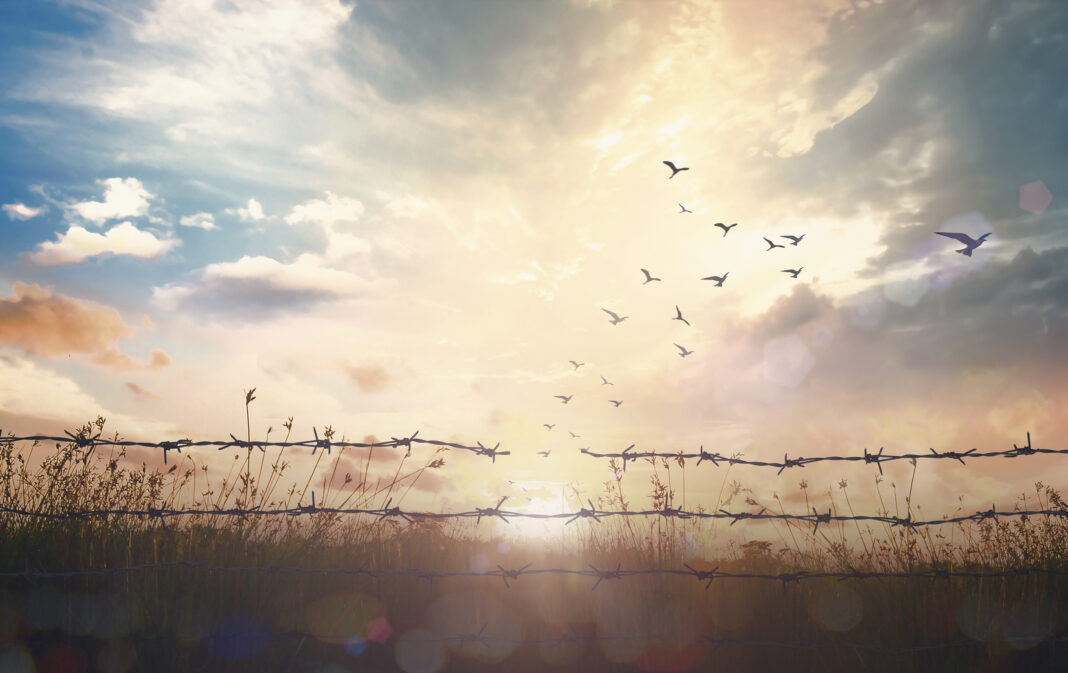by Raffaele Crocco
It’s certainly a challenging situation. It’s always difficult, to be honest. How do you really come to terms with something like that? How do you come to terms with the calculated killing of six million people – women, children, men and the elderly – simply because they were Jewish, always considered inferior, unworthy, inhuman? Much like those who were killed alongside them, in the same camps, with the same methods: Roma, Gypsies, homosexuals, dissidents. It is not easy to discuss and articulate the right feelings about this. This is because we, our ancestors, our families, were still allied with those who did the killing. It doesn’t matter if they didn’t arrest the Jews, load them onto trucks and trains, or personally operate the valve of the lethal gas that ended their lives in Auschwitz, Treblinka, Mauthausen, Birkenau. They were on the side of the murderers because they didn’t intervene in time; they remained indifferent, deliberately ignorant. Indifference is one of the deadliest forces in the world.
And how do you deal with an issue that many, especially fascists, continue to deny or play down? How do you really remember, with the clarity necessary for a desire for redemption, when you keep telling yourself “Italians, good people”, as if only the Germans were responsible for rounding up not only Jews, but also Roma, Sinti, homosexuals and dissidents?
We find ourselves ensnared by our justifications and conflicting beliefs, which are so vast and powerful that they create perpetual misunderstandings. Take, for example, the misconception that Holocaust Remembrance Day should be used to commemorate all massacres in contemporary history. Some want to include everything in this commemoration, but that is not the intention. The Holocaust is such a unique and profound horror in human history that it should not be lumped together with other atrocities. Pain should not be blurred and, above all, guilt should not be conflated, for they are distinct, each with its own specific perpetrator. If we blur the lines, if we make them all equal, these despicable criminals will continue to evade justice, hidden in the shadows of too many perpetrators and too many horrors.
Today, 27 January, we commemorate the Holocaust alone. We remember and honour the Jews who endured centuries of senseless and foolish persecution. Remembering the Holocaust serves to free us from the continuing responsibility of persecution, the guilt associated with ghettos built for isolation, and the folly of created prejudice. The Holocaust should be embraced as our shared collective memory, beyond the memory of the Jews who have etched this horror on their skin like the tattoos of the extermination camps.
Then, starting tomorrow, let’s initiate remembrance and awareness of today’s events. Let’s draw attention to the horrors unfolding in Gaza and the West Bank as the Israelis deny the entire Palestinian population the right to exist. Let us recall the murder of thousands of women, old people and children, sacrificed in the pursuit of an “ideal homeland” envisioned by a three-thousand-year-old god, to be built without the inclusion of Palestinians. But let’s be careful not to confuse these narratives. Let’s put the spotlight on today’s culprits, while respecting the Holocaust. This will ensure that no modern fascist Government can use the memory of six million dead to cover up its own atrocities.
Cover photo ©Jacob_09/Shutterstock.com
























